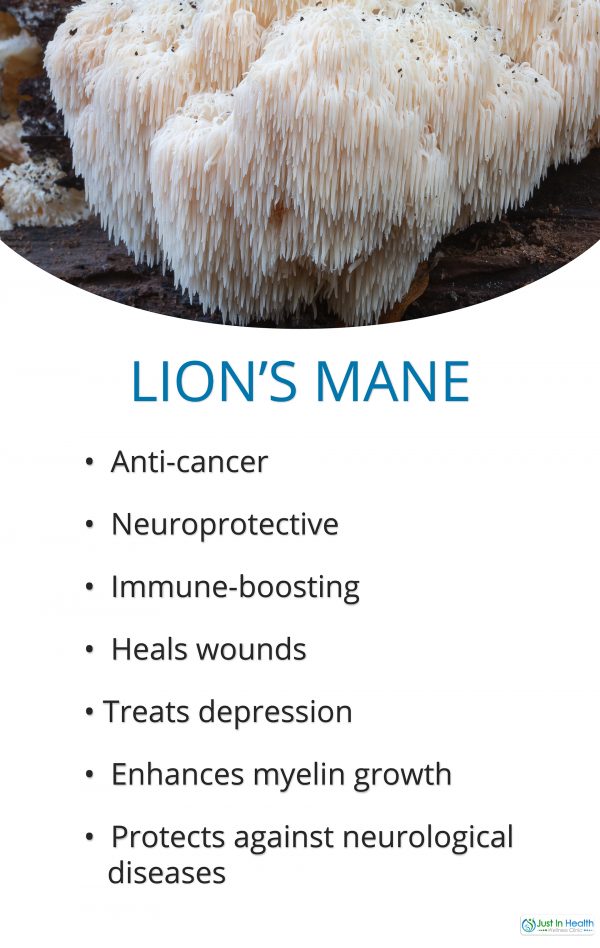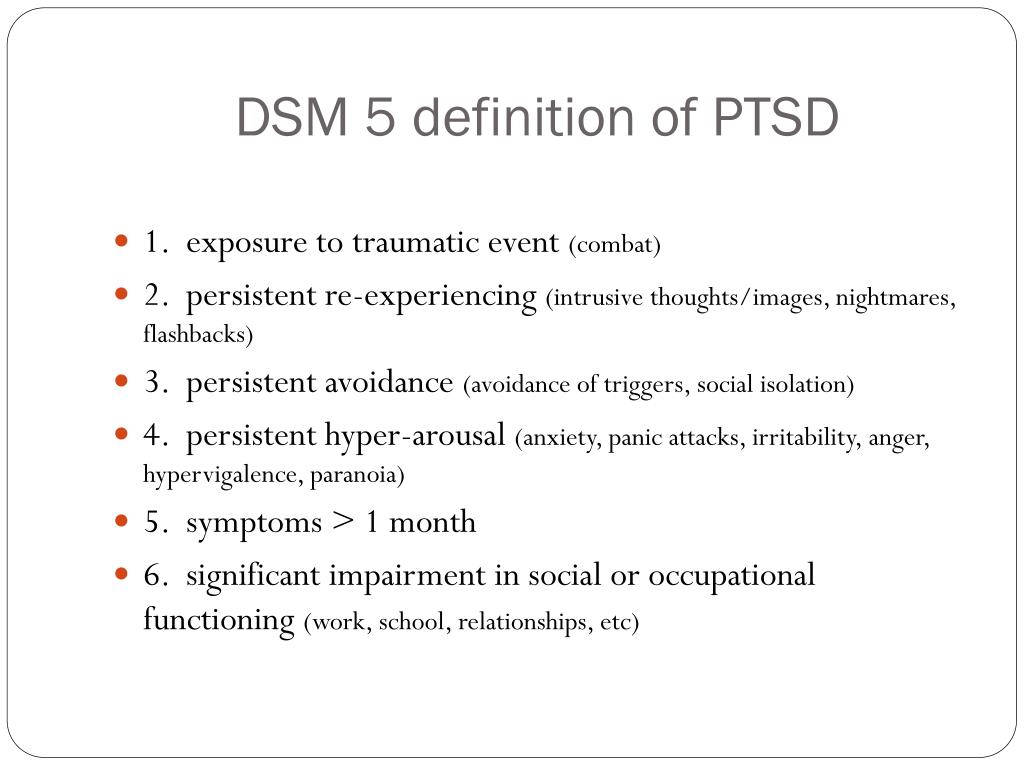Lion's mane research
Neurotrophic properties of the Lion's mane medicinal mushroom, Hericium erinaceus (Higher Basidiomycetes) from Malaysia
. 2013;15(6):539-54.
doi: 10.1615/intjmedmushr.v15.i6.30.
Puei-Lene Lai 1 , Murali Naidu, Vikineswary Sabaratnam, Kah-Hui Wong, Rosie Pamela David, Umah Rani Kuppusamy, Noorlidah Abdullah, Sri Nurestri A Malek
Affiliations
Affiliation
- 1 Mushroom Research Centre, Fungal Biotechnology Lab, Institute of Biological Sciences, Faculty of Science, University of Malaya, Kuala Lumpur, Malaysia.
- PMID: 24266378
- DOI: 10.
1615/intjmedmushr.v15.i6.30
Puei-Lene Lai et al. Int J Med Mushrooms. 2013.
. 2013;15(6):539-54.
doi: 10.1615/intjmedmushr.v15.i6.30.
Authors
Puei-Lene Lai 1 , Murali Naidu, Vikineswary Sabaratnam, Kah-Hui Wong, Rosie Pamela David, Umah Rani Kuppusamy, Noorlidah Abdullah, Sri Nurestri A Malek
Affiliation
- 1 Mushroom Research Centre, Fungal Biotechnology Lab, Institute of Biological Sciences, Faculty of Science, University of Malaya, Kuala Lumpur, Malaysia.
- PMID: 24266378
- DOI: 10.
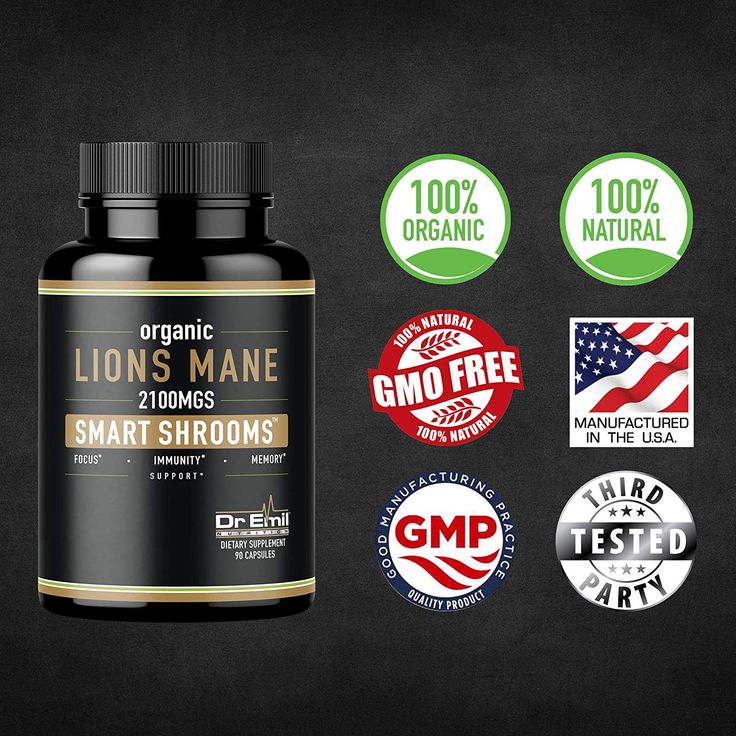 1615/intjmedmushr.v15.i6.30
1615/intjmedmushr.v15.i6.30
Abstract
Neurotrophic factors are important in promoting the growth and differentiation of neurons. Nerve growth factor (NGF) is essential for the maintenance of the basal forebrain cholinergic system. Hericenones and erinacines isolated from the medicinal mushroom Hericium erinaceus can induce NGF synthesis in nerve cells. In this study, we evaluated the synergistic interaction between H. erinaceus aqueous extract and exogenous NGF on the neurite outgrowth stimulation of neuroblastoma-glioma cell NG108-15. The neuroprotective effect of the mushroom extract toward oxidative stress was also studied. Aqueous extract of H. erinaceus was shown to be non-cytotoxic to human lung fibroblast MRC-5 and NG108-15 cells. The combination of 10 ng/mL NGF with 1 μg/mL mushroom extract yielded the highest percentage increase of 60.6% neurite outgrowth. The extract contained neuroactive compounds that induced the secretion of extracellular NGF in NG108-15 cells, thereby promoting neurite outgrowth activity.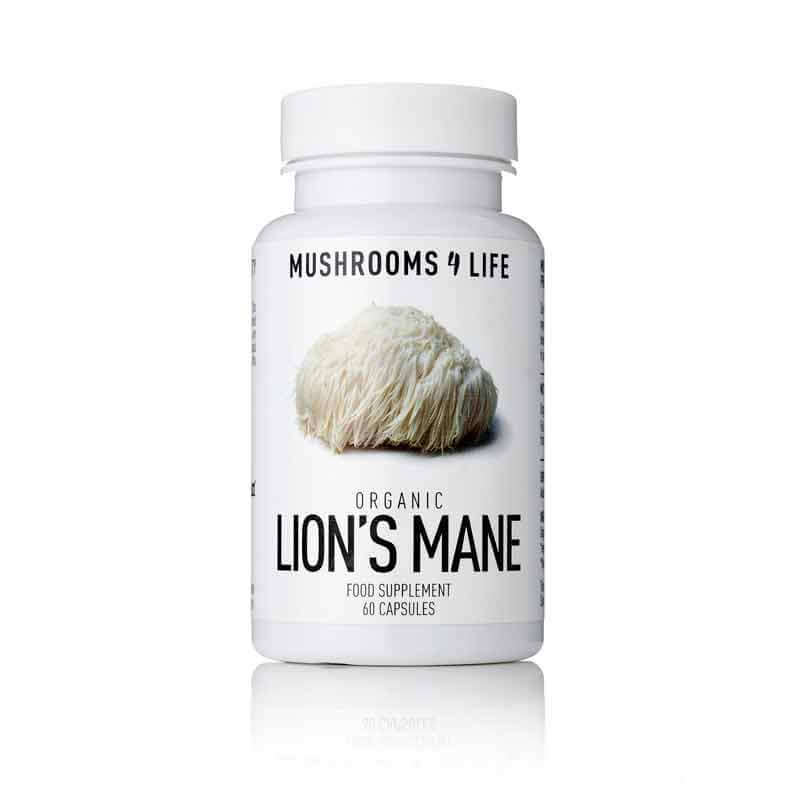 However, the H. erinaceus extract failed to protect NG108-15 cells subjected to oxidative stress when applied in pre-treatment and co-treatment modes. In conclusion, the aqueous extract of H. erinaceus contained neuroactive compounds which induced NGF-synthesis and promoted neurite outgrowth in NG108-15 cells. The extract also enhanced the neurite outgrowth stimulation activity of NGF when applied in combination. The aqueous preparation of H. erinaceus had neurotrophic but not neuroprotective activities.
However, the H. erinaceus extract failed to protect NG108-15 cells subjected to oxidative stress when applied in pre-treatment and co-treatment modes. In conclusion, the aqueous extract of H. erinaceus contained neuroactive compounds which induced NGF-synthesis and promoted neurite outgrowth in NG108-15 cells. The extract also enhanced the neurite outgrowth stimulation activity of NGF when applied in combination. The aqueous preparation of H. erinaceus had neurotrophic but not neuroprotective activities.
Similar articles
-
Hericium erinaceus (Bull.: Fr) Pers. cultivated under tropical conditions: isolation of hericenones and demonstration of NGF-mediated neurite outgrowth in PC12 cells via MEK/ERK and PI3K-Akt signaling pathways.
Phan CW, Lee GS, Hong SL, Wong YT, Brkljača R, Urban S, Abd Malek SN, Sabaratnam V. Phan CW, et al. Food Funct.
 2014 Dec;5(12):3160-9. doi: 10.1039/c4fo00452c. Food Funct. 2014. PMID: 25288148
2014 Dec;5(12):3160-9. doi: 10.1039/c4fo00452c. Food Funct. 2014. PMID: 25288148 -
Lion's Mane, Hericium erinaceus and Tiger Milk, Lignosus rhinocerotis (Higher Basidiomycetes) Medicinal Mushrooms Stimulate Neurite Outgrowth in Dissociated Cells of Brain, Spinal Cord, and Retina: An In Vitro Study.
Samberkar S, Gandhi S, Naidu M, Wong KH, Raman J, Sabaratnam V. Samberkar S, et al. Int J Med Mushrooms. 2015;17(11):1047-54. doi: 10.1615/intjmedmushrooms.v17.i11.40. Int J Med Mushrooms. 2015. PMID: 26853959
-
Nerve growth factor-inducing activity of Hericium erinaceus in 1321N1 human astrocytoma cells.
Mori K, Obara Y, Hirota M, Azumi Y, Kinugasa S, Inatomi S, Nakahata N. Mori K, et al. Biol Pharm Bull. 2008 Sep;31(9):1727-32.
 doi: 10.1248/bpb.31.1727. Biol Pharm Bull. 2008. PMID: 18758067
doi: 10.1248/bpb.31.1727. Biol Pharm Bull. 2008. PMID: 18758067 -
Hericium erinaceus: an edible mushroom with medicinal values.
Khan MA, Tania M, Liu R, Rahman MM. Khan MA, et al. J Complement Integr Med. 2013 May 24;10:/j/jcim.2013.10.issue-1/jcim-2013-0001/jcim-2013-0001.xml. doi: 10.1515/jcim-2013-0001. J Complement Integr Med. 2013. PMID: 23735479 Review.
-
Therapeutic Potential of Hericium erinaceus for Depressive Disorder.
Chong PS, Fung ML, Wong KH, Lim LW. Chong PS, et al. Int J Mol Sci. 2019 Dec 25;21(1):163. doi: 10.3390/ijms21010163. Int J Mol Sci. 2019. PMID: 31881712 Free PMC article. Review.
See all similar articles
Cited by
-
Hericium erinaceus Mycelium Ameliorates In Vivo Progression of Osteoarthritis.
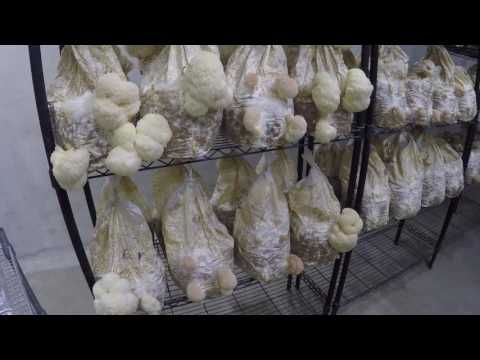
Yang SY, Fang CJ, Chen YW, Chen WP, Lee LY, Chen CC, Lin YY, Liu SC, Tsai CH, Huang WC, Wu YC, Tang CH. Yang SY, et al. Nutrients. 2022 Jun 23;14(13):2605. doi: 10.3390/nu14132605. Nutrients. 2022. PMID: 35807786 Free PMC article.
-
Neurogenesis-dependent antidepressant-like activity of Hericium erinaceus in an animal model of depression.
Chong PS, Poon CH, Roy J, Tsui KC, Lew SY, Phang MWL, Tan RJY, Cheng PG, Fung ML, Wong KH, Lim LW. Chong PS, et al. Chin Med. 2021 Dec 7;16(1):132. doi: 10.1186/s13020-021-00546-8. Chin Med. 2021. PMID: 34876186 Free PMC article.
-
Hericium erinaceus potentially rescues behavioural motor deficits through ERK-CREB-PSD95 neuroprotective mechanisms in rat model of 3-acetylpyridine-induced cerebellar ataxia.

Chong PS, Khairuddin S, Tse ACK, Hiew LF, Lau CL, Tipoe GL, Fung ML, Wong KH, Lim LW. Chong PS, et al. Sci Rep. 2020 Sep 10;10(1):14945. doi: 10.1038/s41598-020-71966-z. Sci Rep. 2020. PMID: 32913245 Free PMC article.
-
Prevention of Early Alzheimer's Disease by Erinacine A-Enriched Hericium erinaceus Mycelia Pilot Double-Blind Placebo-Controlled Study.
Li IC, Chang HH, Lin CH, Chen WP, Lu TH, Lee LY, Chen YW, Chen YP, Chen CC, Lin DP. Li IC, et al. Front Aging Neurosci. 2020 Jun 3;12:155. doi: 10.3389/fnagi.2020.00155. eCollection 2020. Front Aging Neurosci. 2020. PMID: 32581767 Free PMC article.
-
Impact of Dual Cell Co-culture and Cell-conditioned Media on Yield and Function of a Human Olfactory Cell Line for Regenerative Medicine.

Wood R, Durali P, Wall I. Wood R, et al. Bioengineering (Basel). 2020 Apr 12;7(2):37. doi: 10.3390/bioengineering7020037. Bioengineering (Basel). 2020. PMID: 32290611 Free PMC article.
See all "Cited by" articles
Publication types
MeSH terms
Substances
Lion's Mane, Hericium erinaceus and Tiger Milk, Lignosus rhinocerotis (Higher Basidiomycetes) Medicinal Mushrooms Stimulate Neurite Outgrowth in Dissociated Cells of Brain, Spinal Cord, and Retina: An In Vitro Study
. 2015;17(11):1047-54.
doi: 10.1615/intjmedmushrooms.v17.i11.40.
Snehlata Samberkar 1 , Sivasangkary Gandhi 2 , Murali Naidu 1 , Kah-Hui Wong 1 , Jegadeesh Raman 2 , Vikineswary Sabaratnam 2
Affiliations
Affiliations
- 1 Mushroom Research Centre, Institute of Biological Sciences, Faculty of Science, University of Malaya, Kuala Lumpur, Malaysia; Department of Anatomy, Faculty of Medicine, University of Malaya, Kuala Lumpur, Malaysia.

- 2 Mushroom Research Centre, Institute of Biological Sciences, Faculty of Science, University of Malaya, Kuala Lumpur, Malaysia; Institute of Biological Sciences, Faculty of Science, University of Malaya, Kuala Lumpur, Malaysia.
- PMID: 26853959
- DOI: 10.1615/intjmedmushrooms.v17.i11.40
Snehlata Samberkar et al. Int J Med Mushrooms. 2015.
. 2015;17(11):1047-54.
doi: 10.1615/intjmedmushrooms.v17.i11.40.
Authors
Snehlata Samberkar 1 , Sivasangkary Gandhi 2 , Murali Naidu 1 , Kah-Hui Wong 1 , Jegadeesh Raman 2 , Vikineswary Sabaratnam 2
Affiliations
- 1 Mushroom Research Centre, Institute of Biological Sciences, Faculty of Science, University of Malaya, Kuala Lumpur, Malaysia; Department of Anatomy, Faculty of Medicine, University of Malaya, Kuala Lumpur, Malaysia.

- 2 Mushroom Research Centre, Institute of Biological Sciences, Faculty of Science, University of Malaya, Kuala Lumpur, Malaysia; Institute of Biological Sciences, Faculty of Science, University of Malaya, Kuala Lumpur, Malaysia.
- PMID: 26853959
- DOI: 10.1615/intjmedmushrooms.v17.i11.40
Abstract
Neurodegenerative disease is defined as a deterioration of the nervous system in the intellectual and cognitive capabilities. Statistics show that more than 80-90 million individuals age 65 and above in 2050 may be affected by neurodegenerative conditions like Alzheimer's and Parkinson's disease. Studies have shown that out of 2000 different types of edible and/or medicinal mushrooms, only a few countable mushrooms have been selected until now for neurohealth activity.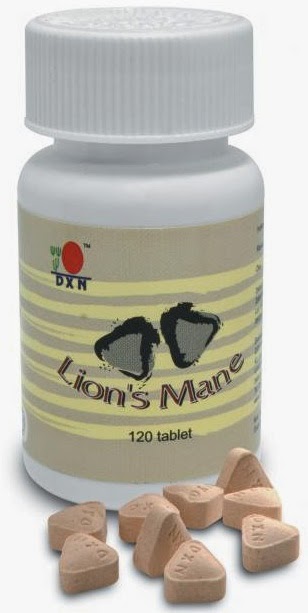 Hericium erinaceus is one of the well-established medicinal mushrooms for neuronal health. It has been documented for its regenerative capability in peripheral nerve. Another mushroom used as traditional medicine is Lignosus rhinocerotis, which has been used for various illnesses. It has been documented for its neurite outgrowth potential in PC12 cells. Based on the regenerative capabilities of both the mushrooms, priority was given to select them for our study. The aim of this study was to investigate the potential of H. erinaceus and L. rhinocerotis to stimulate neurite outgrowth in dissociated cells of brain, spinal cord, and retina from chick embryo when compared to brain derived neurotrophic factor (BDNF). Neurite outgrowth activity was confirmed by the immu-nofluorescence method in all tissue samples. Treatment with different concentrations of extracts resulted in neuronal differentiation and neuronal elongation. H. erinaceus extract at 50 µg/mL triggered neurite outgrowth at 20.
Hericium erinaceus is one of the well-established medicinal mushrooms for neuronal health. It has been documented for its regenerative capability in peripheral nerve. Another mushroom used as traditional medicine is Lignosus rhinocerotis, which has been used for various illnesses. It has been documented for its neurite outgrowth potential in PC12 cells. Based on the regenerative capabilities of both the mushrooms, priority was given to select them for our study. The aim of this study was to investigate the potential of H. erinaceus and L. rhinocerotis to stimulate neurite outgrowth in dissociated cells of brain, spinal cord, and retina from chick embryo when compared to brain derived neurotrophic factor (BDNF). Neurite outgrowth activity was confirmed by the immu-nofluorescence method in all tissue samples. Treatment with different concentrations of extracts resulted in neuronal differentiation and neuronal elongation. H. erinaceus extract at 50 µg/mL triggered neurite outgrowth at 20.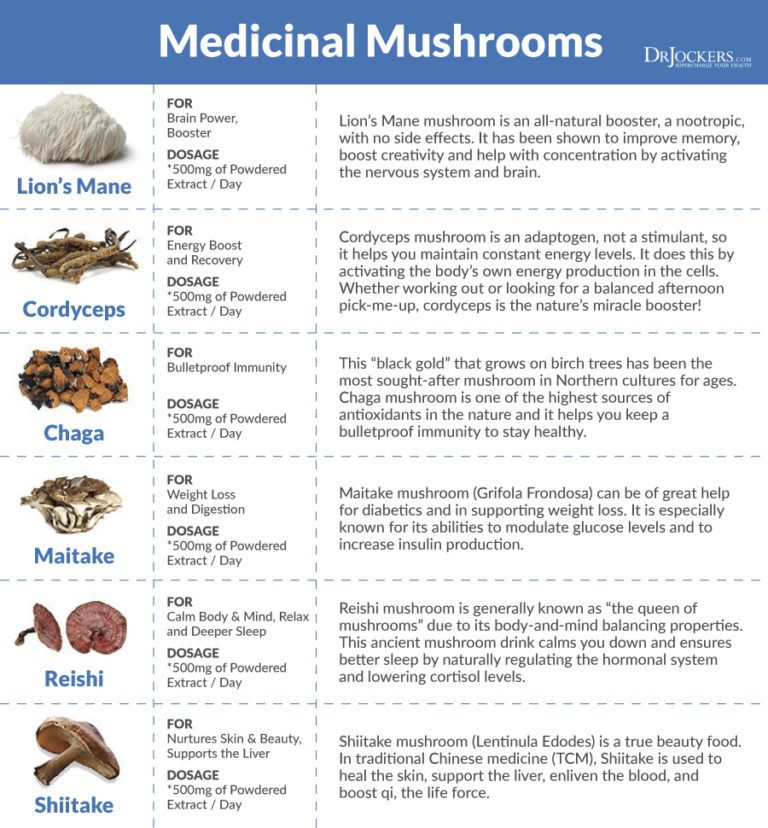 47%, 22.47%, and 21.70% in brain, spinal cord, and retinal cells. L. rhinocerotis sclerotium extract at 50 µg/mL induced maximum neurite outgrowth of 20.77% and 24.73% in brain and spinal cord, whereas 20.77% of neurite outgrowth was observed in retinal cells at 25 µg/mL, respectively.
47%, 22.47%, and 21.70% in brain, spinal cord, and retinal cells. L. rhinocerotis sclerotium extract at 50 µg/mL induced maximum neurite outgrowth of 20.77% and 24.73% in brain and spinal cord, whereas 20.77% of neurite outgrowth was observed in retinal cells at 25 µg/mL, respectively.
Similar articles
-
Neurotrophic properties of the Lion's mane medicinal mushroom, Hericium erinaceus (Higher Basidiomycetes) from Malaysia.
Lai PL, Naidu M, Sabaratnam V, Wong KH, David RP, Kuppusamy UR, Abdullah N, Malek SN. Lai PL, et al. Int J Med Mushrooms. 2013;15(6):539-54. doi: 10.1615/intjmedmushr.v15.i6.30. Int J Med Mushrooms. 2013. PMID: 24266378
-
Neuronal health - can culinary and medicinal mushrooms help?
Sabaratnam V, Kah-Hui W, Naidu M, Rosie David P.
 Sabaratnam V, et al. J Tradit Complement Med. 2013 Jan;3(1):62-8. doi: 10.4103/2225-4110.106549. J Tradit Complement Med. 2013. PMID: 24716157 Free PMC article. Review.
Sabaratnam V, et al. J Tradit Complement Med. 2013 Jan;3(1):62-8. doi: 10.4103/2225-4110.106549. J Tradit Complement Med. 2013. PMID: 24716157 Free PMC article. Review. -
Neurite outgrowth stimulatory effects of myco synthesized AuNPs from Hericium erinaceus (Bull.: Fr.) Pers. on pheochromocytoma (PC-12) cells.
Raman J, Lakshmanan H, John PA, Zhijian C, Periasamy V, David P, Naidu M, Sabaratnam V. Raman J, et al. Int J Nanomedicine. 2015 Sep 18;10:5853-63. doi: 10.2147/IJN.S88371. eCollection 2015. Int J Nanomedicine. 2015. PMID: 26425086 Free PMC article.
-
Neuritin Protein Expression Is Positively Correlated with Neurite Outgrowth Induced by the Tiger Milk Mushroom, Lignosus rhinocerotis (Agaricomycetes), in PC12 Cells.
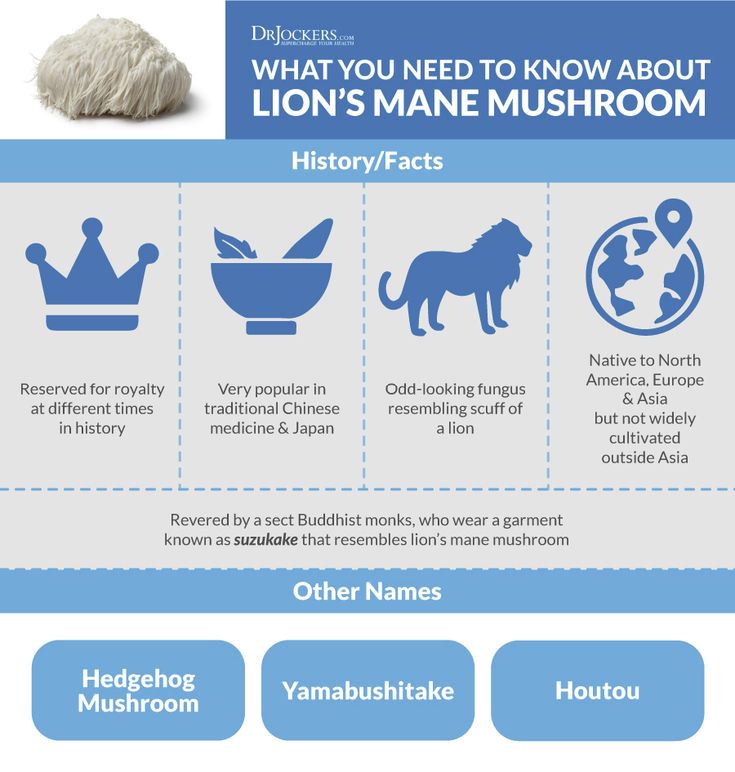
Tan YH, Lim CS, Wong KH, Sabaratnam V. Tan YH, et al. Int J Med Mushrooms. 2021;23(6):1-11. doi: 10.1615/IntJMedMushrooms.2021038578. Int J Med Mushrooms. 2021. PMID: 34369729
-
Hericium erinaceus (Bull.: Fr) Pers. cultivated under tropical conditions: isolation of hericenones and demonstration of NGF-mediated neurite outgrowth in PC12 cells via MEK/ERK and PI3K-Akt signaling pathways.
Phan CW, Lee GS, Hong SL, Wong YT, Brkljača R, Urban S, Abd Malek SN, Sabaratnam V. Phan CW, et al. Food Funct. 2014 Dec;5(12):3160-9. doi: 10.1039/c4fo00452c. Food Funct. 2014. PMID: 25288148
See all similar articles
Cited by
-
The Monkey Head Mushroom and Memory Enhancement in Alzheimer's Disease.
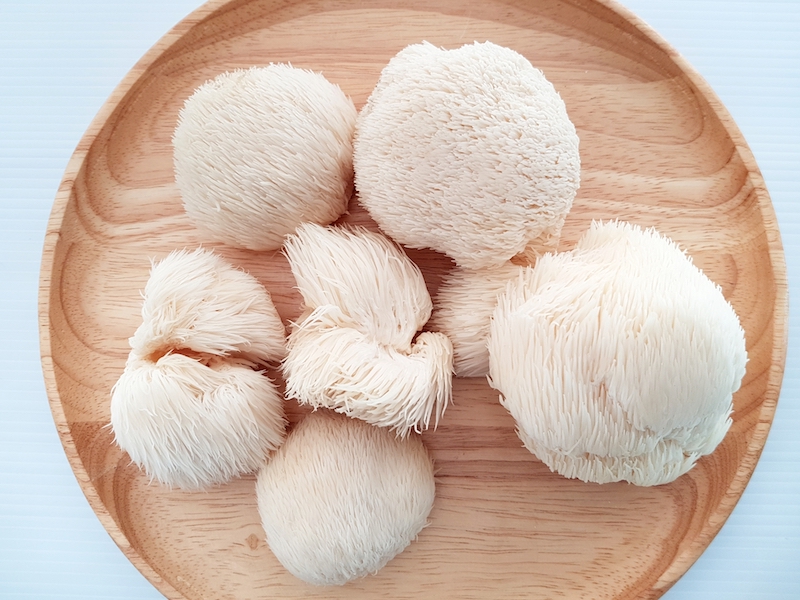
Yanshree, Yu WS, Fung ML, Lee CW, Lim LW, Wong KH. Yanshree, et al. Cells. 2022 Jul 24;11(15):2284. doi: 10.3390/cells11152284. Cells. 2022. PMID: 35892581 Free PMC article. Review.
-
Discovery of Therapeutics Targeting Oxidative Stress in Autosomal Recessive Cerebellar Ataxia: A Systematic Review.
Lew SY, Phang MWL, Chong PS, Roy J, Poon CH, Yu WS, Lim LW, Wong KH. Lew SY, et al. Pharmaceuticals (Basel). 2022 Jun 19;15(6):764. doi: 10.3390/ph25060764. Pharmaceuticals (Basel). 2022. PMID: 35745683 Free PMC article. Review.
-
Human Embryonic Stem Cell-Derived Neural Lineages as In Vitro Models for Screening the Neuroprotective Properties of Lignosus rhinocerus (Cooke) Ryvarden.
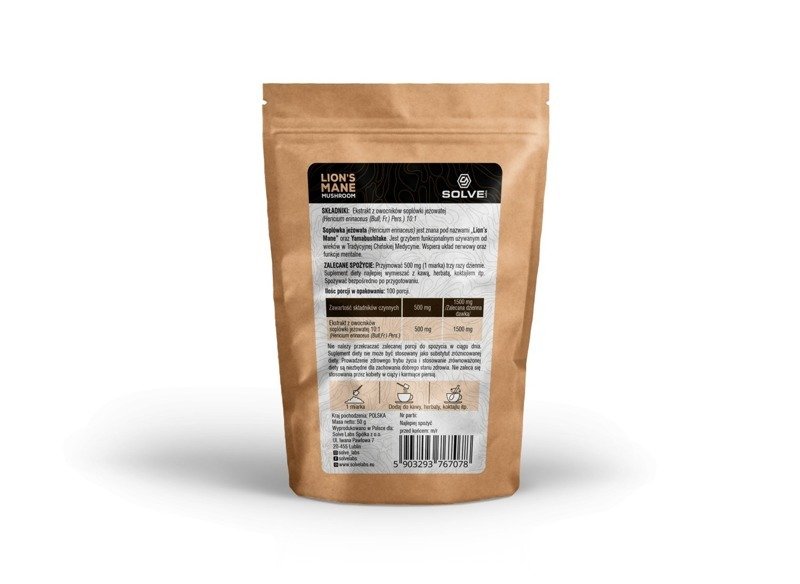
Yeo Y, Tan JBL, Lim LW, Tan KO, Heng BC, Lim WL. Yeo Y, et al. Biomed Res Int. 2019 Aug 19;2019:3126376. doi: 10.1155/2019/3126376. eCollection 2019. Biomed Res Int. 2019. PMID: 33204680 Free PMC article.
-
Potential Antidepressant Effects of Scutellaria baicalensis, Hericium erinaceus and Rhodiola rosea.
Limanaqi F, Biagioni F, Busceti CL, Polzella M, Fabrizi C, Fornai F. Limanaqi F, et al. Antioxidants (Basel). 2020 Mar 12;9(3):234. doi: 10.3390/antiox9030234. Antioxidants (Basel). 2020. PMID: 32178272 Free PMC article. Review.
-
Lion's Mane Mushroom, Hericium erinaceus (Bull.: Fr.) Pers. Suppresses H2O2-Induced Oxidative Damage and LPS-Induced Inflammation in HT22 Hippocampal Neurons and BV2 Microglia.
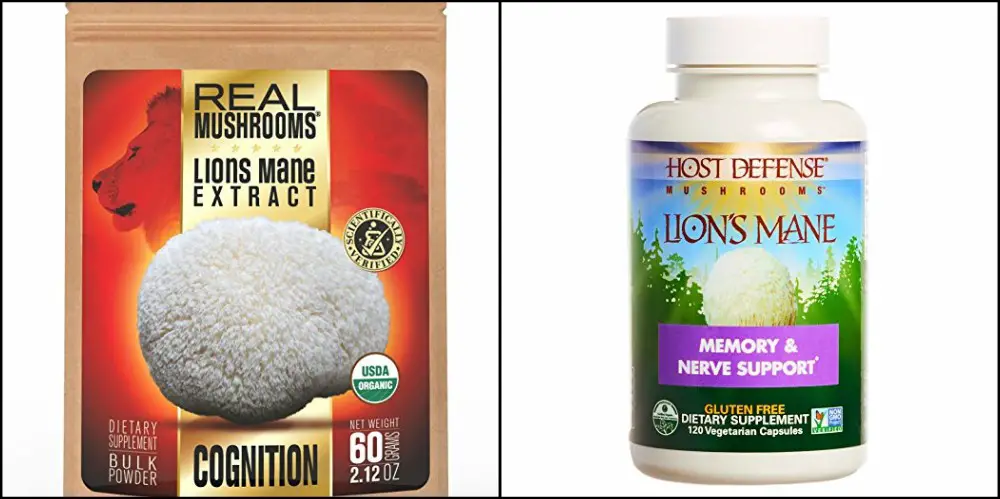
Kushairi N, Phan CW, Sabaratnam V, David P, Naidu M. Kushairi N, et al. Antioxidants (Basel). 2019 Aug 1;8(8):261. doi: 10.3390/antiox8080261. Antioxidants (Basel). 2019. PMID: 31374912 Free PMC article.
See all "Cited by" articles
Publication types
MeSH terms
Substances
Mushroom lion's mane (comb blackberry) – Nordboost
Lion's mane mushrooms, also known as hou to gu, yamabushitake, or lion's coral reef, are large porcini mushrooms that grow to resemble a lion's mane. They are used both in cooking and medicine in Asian countries such as China, India, Japan and Korea. Lion's mane mushrooms contain biologically active substances that have a beneficial effect on the body, especially on the brain, heart and intestines.
View item
The ability of the brain to grow and make new connections usually declines with age, which explains the low mental performance of many older people.
Studies have shown that lion's mane mushrooms contain two specific compounds that can stimulate the growth of brain cells: hercenones and erikacins.
In addition, animal studies have shown that lion's mane mushroom may help protect against Alzheimer's disease, a degenerative brain disease that causes progressive memory loss.
Lion's mane mushroom and its extracts have been shown to reduce symptoms of memory loss in mice and prevent neuronal damage caused by beta-amyloid plaques that accumulate in the brain during Alzheimer's disease. While no study has analyzed whether lion's mane is beneficial for people with Alzheimer's disease, it appears to promote mental functioning.
A study in older adults with mild cognitive impairment found that eating lion's mane mushrooms daily for four months significantly improved mental performance.
Lion's mane mushroom's ability to stimulate nerve growth and protect the brain from damage associated with Alzheimer's disease may explain its beneficial effects on brain health.
Lion's Mane mushrooms contain compounds that stimulate the growth of brain cells and protect them from damage caused by Alzheimer's disease.
Up to one third of people in developed countries experience symptoms of anxiety and depression.
While there are many causes for anxiety and depression, chronic inflammation can be one of the main factors.
New research has shown that lion's mane mushroom extract has anti-inflammatory effects that may reduce symptoms of anxiety and depression.
Other experiments have found that lion's mane can also help renew brain cells and improve the functioning of the hippocampus, the area of the brain responsible for processing memories and emotional responses.
Researchers believe that improved hippocampal function may explain the reduction in anxiety and depressive behavior in mice treated with these extracts.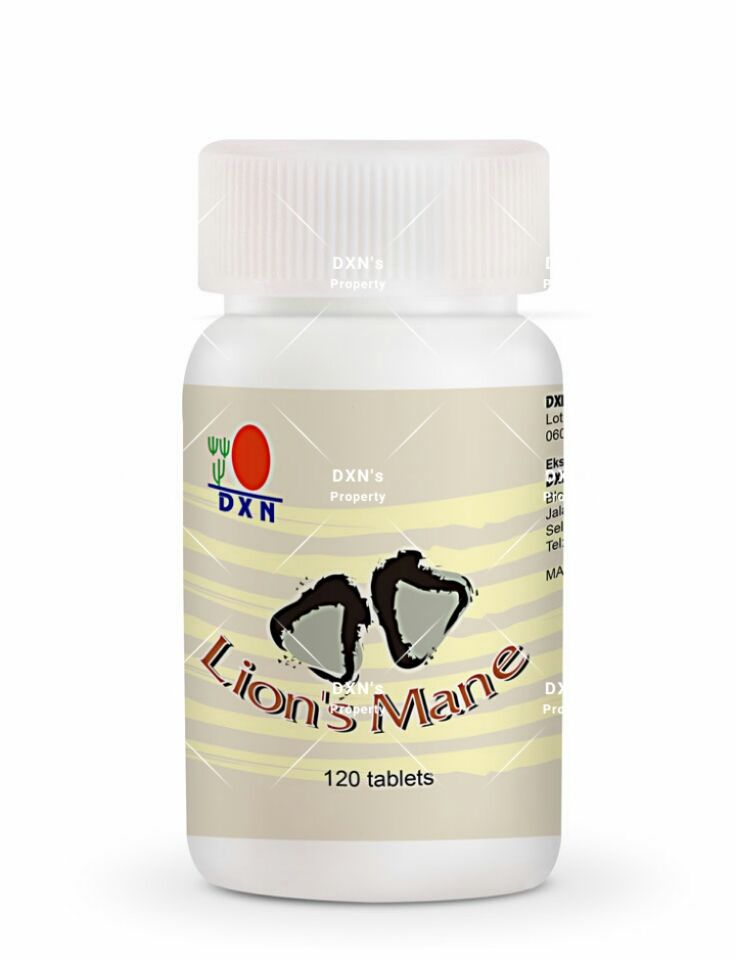
In a study in postmenopausal women, daily consumption of lion's mane mushroom biscuits for a month helped reduce previously observed irritation and anxiety.
The nervous system consists of the brain, spinal cord and other nerves that are located throughout the body. These components work together to send and transmit signals that control all body functions.
Injuries to the brain or spinal cord can be very severe. They often cause paralysis or loss of mental function and can take a long time to heal.
However, studies have shown that lion's mane mushroom extract can speed up recovery from this type of injury by stimulating the growth and repair of nerve cells.
Studies have shown that lion's mane mushroom extract reduces recovery time by 23-41% when administered to rats with nerve injuries.
9 Benefits of Lion's Mane Mushroom - UsaVit.com
9 Benefits of Lion's Mane Mushroom
Lion's Mane Mushrooms, also known as Hou To Gu or Yamabusitake, are large white hairy mushrooms that which during growth resemble a lion's mane.
They are used both in cooking and medicine in Asian countries such as China, India, Japan and Korea.
Lion's Mane Mushrooms can be eaten raw, boiled, dried or brewed as a tea. Their extracts are often used in over-the-counter nutritional supplements.
Many describe their taste as "seafood", often comparing it to crab or lobster.
Lion's mane mushrooms contain biologically active substances that have a beneficial effect on the body, especially on the brain, heart and intestines.
Here are 9 health benefits of lion's mane mushrooms and their extracts.
1. Protects against dementia
The brain's ability to grow and form new connections typically declines with age, which may explain why many older people experience poor mental functioning.
Studies have shown that Lion's Mane mushrooms contain two specific compounds that can stimulate brain cell growth: hercenones and erinacins.
In addition, animal studies have shown that Lion's Mane may help protect against Alzheimer's, a degenerative brain disease that causes progressive memory loss.
In fact, Lion's Mane Mushroom and its extracts have been shown to reduce symptoms of memory loss in mice, as well as prevent neuronal damage caused by beta-amyloid plaques that build up in the brain during Alzheimer's disease.
Although no studies have analyzed whether Lion's Mane is beneficial for Alzheimer's disease in humans, it appears to improve brain function.
A study in older adults with mild cognitive impairment found that eating 3 grams of minced Lion's Mane mushroom daily for four months significantly improved mental functioning, but these benefits disappeared when the supplement was discontinued.
Lion's mane mushroom's ability to stimulate nerve growth and protect the brain from Alzheimer's disease-related damage may explain some of its beneficial effects on brain health.
However, it is important to note that most of the studies were conducted in animals or in test tubes. Therefore, more human studies are needed.
2. Helps relieve mild symptoms of depression and anxiety.
Helps relieve mild symptoms of depression and anxiety.
Up to one third of people living in developed countries experience symptoms of anxiety and depression.
Although there are many causes of anxiety and depression, chronic inflammation can be one of the main factors.
A new animal study shows that Lion's Mane mushroom extract has anti-inflammatory effects, which may reduce symptoms of anxiety and depression in mice.
Other animal studies have shown that Lion's Mane extract may also help regenerate brain cells and improve the functioning of the hippocampus, the area of the brain responsible for processing memories and emotional responses.
Researchers believe that improved hippocampal function may explain the reduction in anxiety and depressive behavior in mice treated with these extracts.
While these animal studies are promising, there are very few human studies.
One small study in menopausal women found that eating Lion's Mane mushroom biscuits daily for one month helped reduce feelings of irritation and anxiety.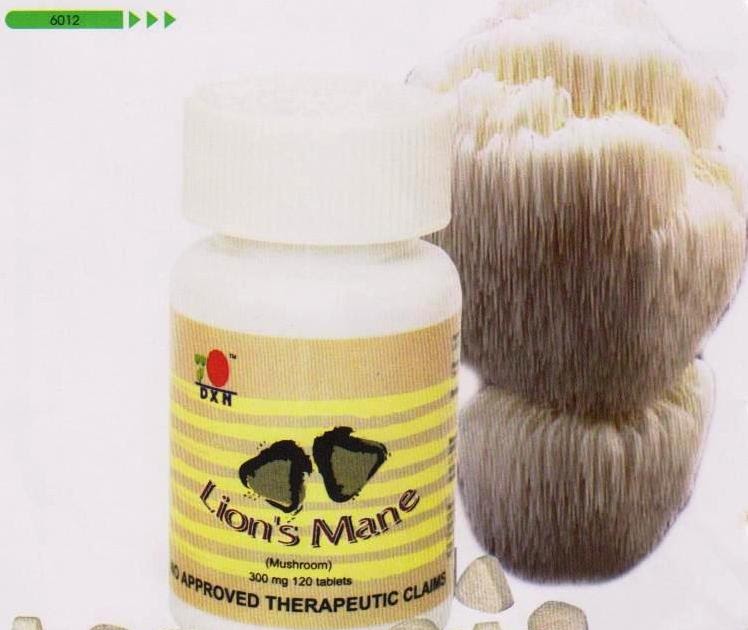
3. May speed up recovery from nerve injury.
The nervous system consists of the brain and spinal cord and other nerves that run throughout the body. These components work together to send and transmit signals that control almost every bodily function.
Injuries to the brain or spinal cord can be very severe. They often cause paralysis or loss of mental function and can take a long time to heal.
However, research has shown that Lion's Mane Mushroom Extract can help speed recovery from these types of injuries by stimulating nerve cell growth and repair.
In fact, Lion's Mane Mushroom Extract reduced recovery time by 23-41% when administered to rats with nervous system injuries.
Lion's mane extract may also help reduce the severity of brain damage after a stroke.
In one study, high doses of lion's mane mushroom extract in rats immediately after a stroke helped reduce inflammation and reduce the size of a stroke-related head injury by 44%.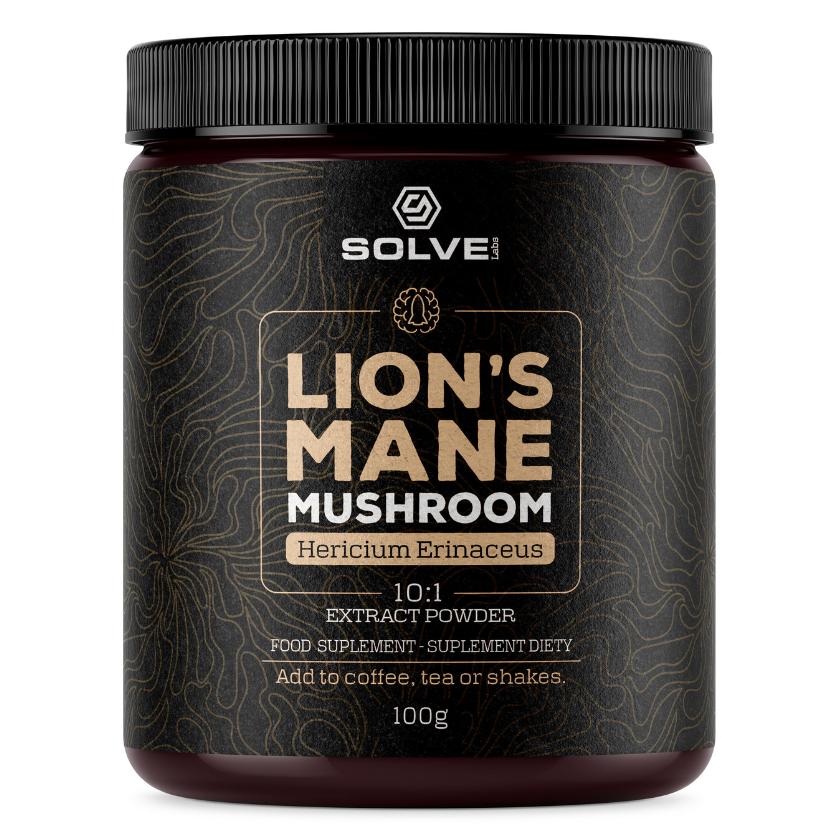
Although these results are promising, no human studies have been conducted to determine if lion's mane has the same therapeutic effect on nerve injuries.
4. Protects against ulcers in the digestive tract.
Ulcers can form anywhere in the digestive tract, including the stomach, small intestine, and large intestine.
Gastric ulcers are often caused by two main factors: an overgrowth of a bacterium called H. pylori and damage to the stomach lining, which often occurs from long-term use of non-steroidal anti-inflammatory drugs (NSAIDs).
Lion's mane extract may protect against the development of gastric ulcers by inhibiting the growth of H. pylori and protecting the gastric mucosa from damage.
Several studies have shown that lion's mane extract can prevent the growth of H. pylori in vitro, but no study has tested whether they have the same effects in the stomach.
In addition, an animal study has shown that Lion's Mane extract is more effective in preventing alcohol-induced stomach ulcers than conventional acid-lowering drugs, and without any negative side effects.
Lion's Mane extract may also reduce inflammation and prevent tissue damage in other areas of the intestine. In fact, they may help treat inflammatory bowel diseases such as ulcerative colitis and Crohn's disease.
One study in people with ulcerative colitis found that taking a mushroom supplement containing 14% lion's mane extract significantly reduced symptoms and improved quality of life after three weeks.
However, when the same study was repeated in patients with Crohn's disease, the benefits were no better than placebo.
It is important to note that the herbal supplement used in these studies included several types of mushrooms, so it is difficult to draw any conclusions about the effects of lion's mane specifically.
Overall, studies show that lion's mane extract may help suppress the development of ulcers, but more human studies are needed.
5. Reduces the risk of heart disease.
Major risk factors for heart disease include obesity, high triglycerides, high oxidized cholesterol, and an increased tendency to form blood clots.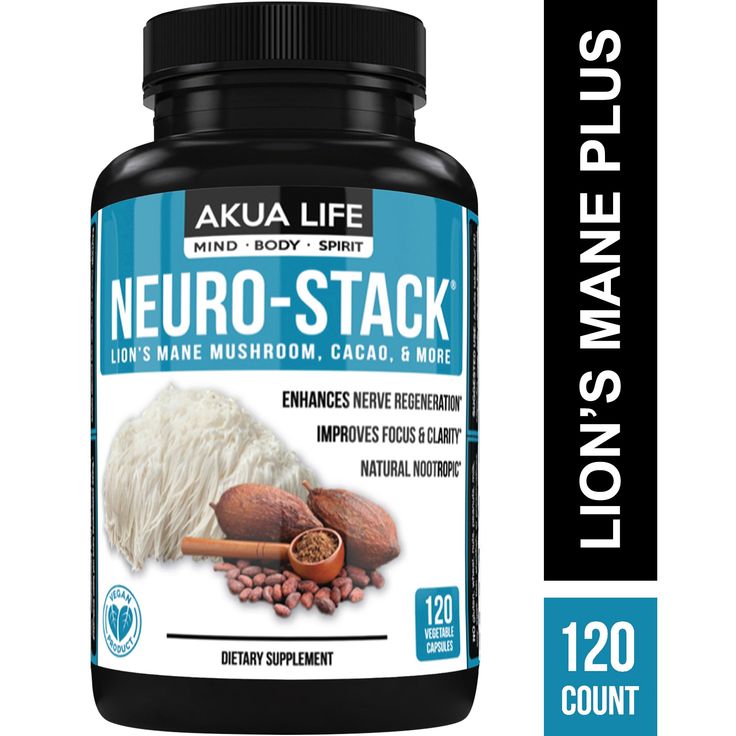
Studies show that lion's mane extract may affect some of these factors and reduce the risk of heart disease.
Studies in rats and mice have shown that Lion's Mane mushroom extract improves fat metabolism and lowers triglycerides.
One study in rats fed a high fat diet with daily doses of Lion's Mane extract showed a 27% reduction in triglycerides and a 42% weight loss after 28 days.
Since obesity and high triglycerides are considered risk factors for heart disease, this is one of the ways that lion's mane mushrooms promote heart health.
Laboratory studies have also shown that Lion's Mane extract may help prevent the oxidation of cholesterol in the bloodstream.
Oxidized cholesterol molecules tend to attach to artery walls, causing them to harden and increasing the risk of heart attack and stroke. Thus, reducing oxidation is good for heart health.
What's more, lion's mane mushrooms contain a compound called hericenon B, which can slow blood clotting and reduce the risk of heart attack or stroke.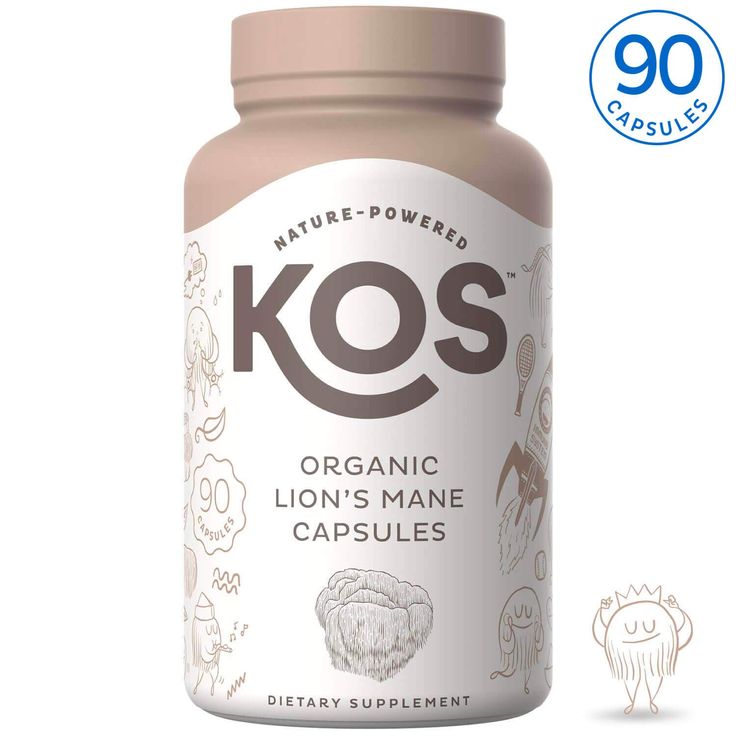
Lion's mane mushrooms appear to be beneficial to the heart and blood vessels in many ways, but human studies are needed to confirm this.
6. Helps manage the symptoms of diabetes.
Diabetes is a disease that occurs when the body loses the ability to control blood sugar levels. As a result, the levels are constantly rising.
Chronically high blood sugar eventually leads to complications such as kidney disease, nerve damage to the arms and legs, and vision loss.
Lion's Mane Mushroom may be useful for treating diabetes by improving blood sugar control and reducing some of these side effects.
Several animal studies have shown that lion's mane can cause significant reductions in blood sugar levels in both normal and diabetic mice, even at daily doses as low as 2.7 mg per pound (6 mg per kg) of body weight .
One way Lion's Mane lowers blood sugar levels is by blocking the activity of the alpha-glucosidase enzyme, which breaks down carbohydrates in the small intestine.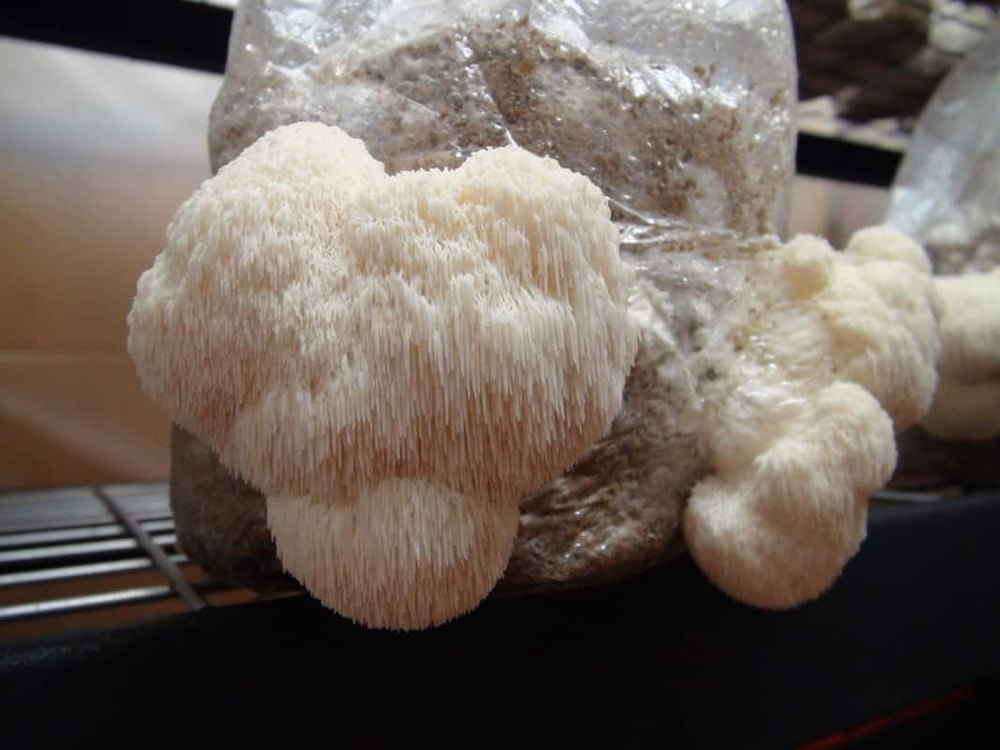
When this enzyme is blocked, the body cannot digest and absorb carbohydrates as efficiently, resulting in low blood sugar levels.
In addition to lowering blood sugar, lion's mane extract may reduce nerve pain in the hands and feet of diabetics.
In mice with diabetic nerve damage, six weeks of daily lion fungus extract significantly reduced pain, lowered blood sugar, and even increased antioxidant levels.
Lion's mane mushroom shows potential as a therapeutic supplement for diabetes, but more research is needed to determine exactly how it can be used in humans.
7. May help fight cancer.
Cancer occurs when DNA becomes damaged and causes uncontrolled cell division and replication.
Several studies show that Lion's Mane fights cancer thanks to several of its unique compounds.
In fact, when Lion's Mane extract is mixed with human cancer cells in vitro, it causes the cancer cells to die faster. This has been demonstrated in several types of cancer cells, including liver, colon, stomach, and blood cancer cells.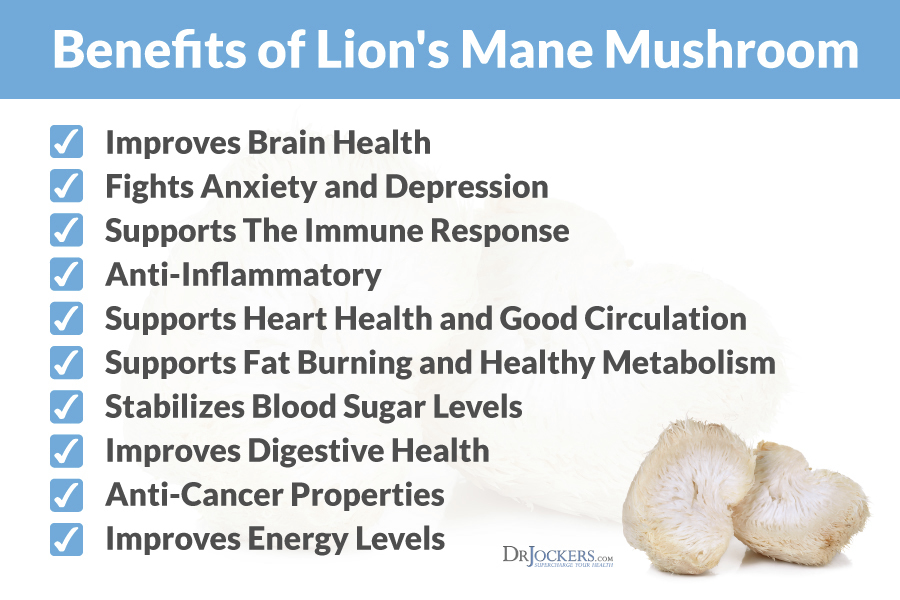
However, at least one study failed to replicate these results, so more research is needed.
In addition to killing cancer cells, lion's mane extract has been shown to slow the spread of cancer.
One study in mice with colon cancer found that Lion's Mane extract reduced the spread of cancer to the lungs by 69%.
Another study showed that Lion's Mane extract was more effective than conventional cancer drugs in slowing down tumor growth in mice and also had fewer side effects.
However, the anti-cancer effects of lion's mane have never been tested in humans, so more research is needed.
8. Reduces inflammation and oxidative stress.
Chronic inflammation and oxidative stress are thought to underlie many of today's diseases, including heart disease, cancer, and autoimmune disorders.
Research shows that Lion's Mane mushrooms contain powerful anti-inflammatory and antioxidant compounds that may help reduce the effects of these diseases.
In fact, one study examining the antioxidant capacity of 14 different mushroom species found Lion's Mane to be the fourth highest antioxidant activity and was recommended as a good dietary source of antioxidants.
Several animal studies have shown that Lion's Mane extract reduces markers of inflammation and oxidative stress in rodents and may be particularly beneficial in the treatment of inflammatory bowel disease, liver damage and stroke.
Lion's Mane Mushrooms may also help reduce some of the health risks associated with obesity, as they have been shown to reduce inflammation caused by adipose tissue.
More research is needed to determine potential health benefits in humans, but laboratory and animal studies are promising.
9. Increases immunity.
A strong immune system protects the body from bacteria, viruses and other pathogens.
On the other hand, a weak immune system puts the body at a higher risk of developing infectious diseases.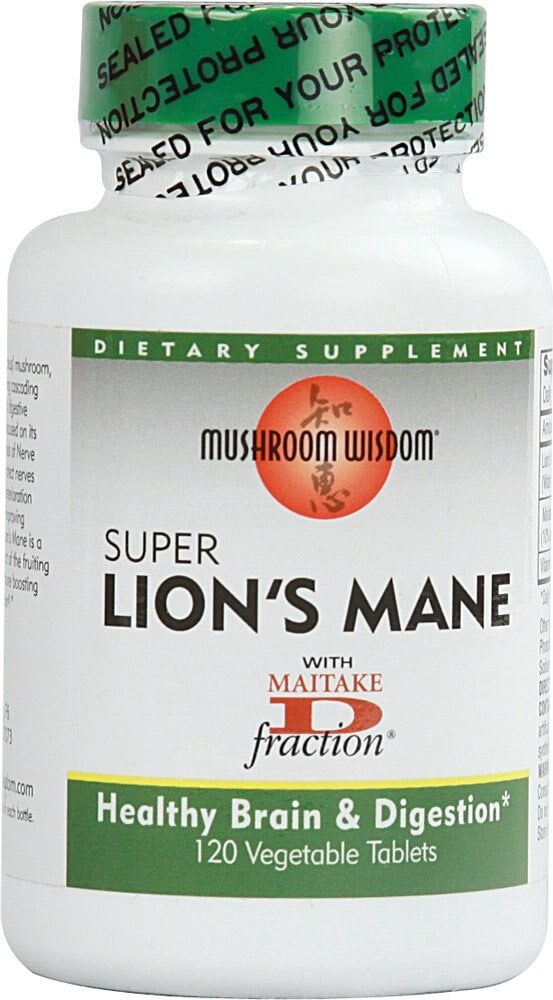
Animal studies show that Lion's Mane Mushroom can boost immunity by increasing the activity of the intestinal immune system, which protects the body from pathogens entering the intestines through the mouth or nose.
These effects may in part be due to beneficial changes in gut bacteria that stimulate the immune system.
One study even showed that daily intake of Lion's Mane extract nearly quadrupled the lifespan of mice injected with lethal doses of salmonella bacteria.
The immunostimulating effect of Lion's Mane mushrooms is very promising, but this area of research is still developing.
Safety and side effects
No side effects were observed in rats, even at doses up to 2.3 grams per pound (5 grams per kg) of body weight per day for one month, or lower doses for three months.
However, anyone with allergies or sensitivities to mushrooms should avoid lion's mane as it is a type of mushroom.
Cases have been documented of people experiencing difficulty breathing or skin rashes after exposure to lion's mane mushrooms, likely associated with allergies.